Sword and Sorcery for Beginners: Everything You Need to Know + 10 Recommended Reads
Tired of fantasy stories where the fate of the world hangs on a teenager with glowing jewellery and a secret lineage?
Then welcome to Sword and Sorcery—the scrappier, bloodier, far less sentimental corner of the fantasy genre.
This blog post will guide you through what Sword and Sorcery is, what it absolutely isn’t, how it differs from high fantasy and grimdark, and why it still carves out a place in readers’ hearts (and possibly kidneys).
Whether you’re new to the genre or just need a refresher on what makes it tick, sharpen your metaphorical blade—we’re going in.
Certainly. Here’s the revised blog post with the bullet points removed, while keeping your tone and SEO-rich phrasing intact:
What Is Sword and Sorcery?Sword and Sorcery is the leather-clad, knife-between-the-teeth cousin of high fantasy.
Instead of grand prophecies, noble quests, or the fate of the world hanging in the balance, Sword and Sorcery drops you into the muck with a sword in one hand and a debt collector on your heels.
It’s intimate. It’s visceral. It’s the story of mercenaries, thieves, outcasts, and reluctant killers doing questionable things for coin, glory, or just a stiff drink and a place to sleep without lice.
At its heart, Sword and Sorcery focuses on personal stakes and gritty, grounded adventures.
Magic is rare and dangerous. The gods are usually best avoided. And the heroes—if we dare call them that—are flawed, violent, and all too human.
What Sword and Sorcery Isn’tIt isn’t high fantasy.
There are no glowing birthmarks, ancient prophecies, or morally unimpeachable monarchs. The only heirlooms passed down are rusty blades and grudges. If a king appears, he’s most likely a tyrant, madman, or a background corpse waiting to happen.
It also isn’t grimdark.
Yes, there’s plenty of blood. Yes, someone probably gets betrayed by a necromancer. And yes, the tavern might serve beer with a side of dysentery. But Sword and Sorcery doesn’t wallow. There’s grit and danger without the nihilism. The tone may be grim, but it’s never hopeless.
The hero might be selfish, but they’ve got a code. Even if that code is “get paid, don’t die.”
How Sword and Sorcery Differs from Other Fantasy Sub-genresSword and Sorcery keeps its world small and its knives sharp.
Where epic fantasy sprawls across kingdoms and chronicles wars that last generations, Sword and Sorcery takes place in back alleys, cursed ruins, and the occasional demon-infested tomb. The plots are tight, immediate, and deeply personal.
You’re not saving the world—you’re trying to escape it with your limbs and loot intact.
Characters tend to be loners, thieves, assassins, or washed-up warriors, the kind of people who’d steal the MacGuffin rather than die protecting it. They don’t want to rule a kingdom. They just want to get through the week without owing a wizard a favour.
Magic, when it appears, is feared rather than revered. It’s dangerous, often corrupting, and never to be trusted. The sorcerer might help you today—but you’ll pay for it tomorrow. Possibly with your soul. Or your liver.
The tone is fast-paced and grounded. The humour is dry. The violence is blunt. And while there’s no shortage of monsters, it’s usually the humans who are the real danger.
Think Robert E. Howard’s Conan, Fritz Leiber’s Fafhrd and the Gray Mouser, or Karl Edward Wagner’s Kane—characters who rely more on wit, grit, and the occasional well-timed backstab than prophecy or divine right.
Why Sword and Sorcery Still ResonatesIn a literary landscape full of doorstoppers and sprawling trilogies that take a map, a glossary, and an annotated family tree to get through, Sword and Sorcery offers something refreshingly sharp.
You don’t need to study ten thousand years of fictional history to enjoy it. You don’t need a cast of fifty morally ambiguous nobles with similar names. You just need one desperate soul, a bad idea, and a blade with enough edge to cause trouble.
Readers return to Sword and Sorcery because it strips fantasy down to its barest essence—survival, struggle, and style.
It’s about living in the moment. The job. The score. The fight.
There’s something deeply satisfying in watching a flawed character go up against cursed gods and ancient horrors—not for some higher cause, but because someone has to pay the rent.
The genre taps into something old, something primal. It’s the campfire story. The legend passed from mercenary to mercenary. The kind of tale where the line between myth and hangover gets blurry.
The Timeless Appeal of Blades and BloodSword and Sorcery isn’t here to change the world.
It’s here to kick in the door, loot the temple, and run before the ceiling collapses.
It’s not about chosen ones. It’s about the ones who weren’t chosen—and went ahead and did it anyway.
That’s why it still matters. Why it still cuts deep.
It reminds us that even in the darkest places, in the grimiest taverns and cursed cities, you can still choose your own path—even if that path ends in fire, steel, and one hell of a bar tab.
So sharpen your blade. Hide your coin. And remember—when the gods start whispering, it’s usually best to pretend you didn’t hear them.
10 Essential Sword and Sorcery NovelsIf you’re ready to wade into the blood-soaked, backstab-happy streets of Sword and Sorcery, here are ten must-reads to get you started.
Only one book per author. No repeats. No mercy.
Guild of Assassins by Jon Cronshaw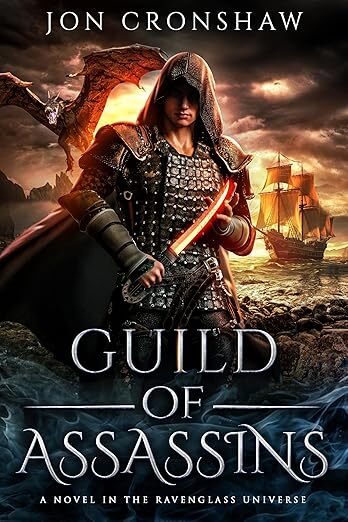
When a sculptor’s apprentice witnesses his father’s murder, he joins a brutal assassins’ guild to carve out his revenge—one corpse at a time.
Set in a cold, unforgiving world where loyalty is earned through survival and tears are harder to come by than coin, this is a story of transformation through blood and grit.
Cronshaw delivers a dark fantasy tale that leans hard into emotional cost, knife-fighting, and moral rot—without losing sight of human connection.
It’s brooding, violent, and painfully honest.
Perfect for readers who want their blades sharp and their guilt sharper.
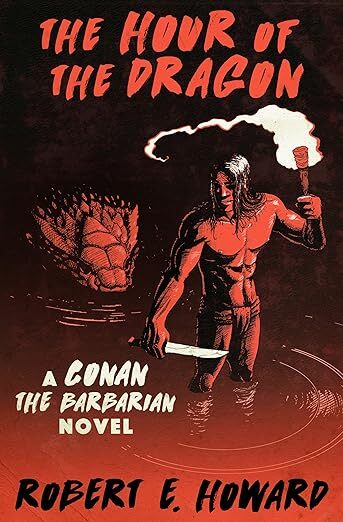
This is Conan at his most ambitious: dethroned, hunted, and somehow still shirtless.
Howard gives us a full novel of mayhem, necromancy, and revenge served by the barrel.
Conan isn’t just a brute here—he’s cunning, ruthless, and very much aware that most kings deserve stabbing.
The pacing cracks like a whip and never lets up.
Accept no substitutes—this is the foundation stone of Sword and Sorcery.
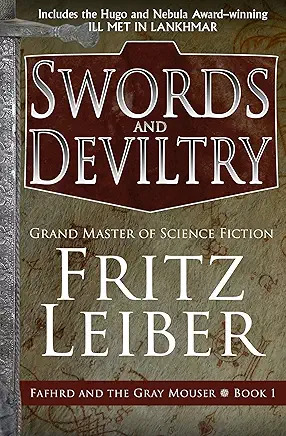
This is where Fafhrd and the Gray Mouser begin their long, strange, gloriously chaotic journey.
The city of Lankhmar feels like it was built on the bones of a hundred bad ideas, which suits our duo perfectly.
They drink, brawl, steal, and occasionally fall in love—with disastrous results.
Leiber writes with wit, danger, and just enough weird to keep you uncomfortable.
The bromance is real, the consequences fatal.
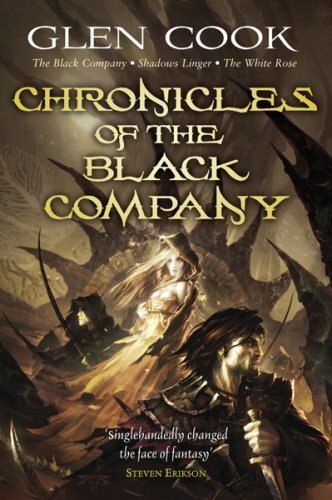
A mercenary company signs a contract with a sorceress who makes your average villain look like a children’s entertainer.
Told by the company’s medic, this is fantasy filtered through cigarette smoke and regret.
The battles are messy, the magic is nasty, and nobody escapes clean.
Cook’s prose is sparse, his morality murky, and his humour as dry as bone dust.
This is Sword and Sorcery with a clipboard and a conscience.
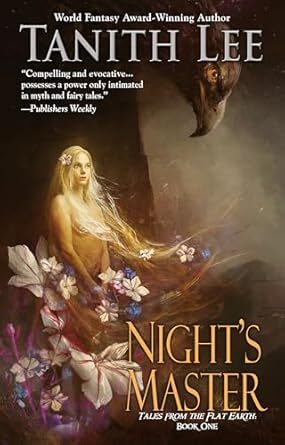
Welcome to the desert city of Dusarra, where demons whisper and beauty cuts deeper than any blade.
Lee’s prose is lyrical, sensual, and laced with cruelty.
The stories feel like myths written by someone who never trusted gods in the first place.
Azhrarn, the titular Night’s Master, is equal parts seducer and sadist—but never boring.
Read this if you want your sorcery decadent and your swords poetic.
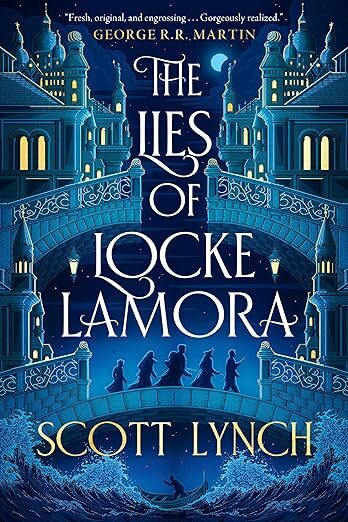
Locke is a thief, a liar, and catastrophically bad at staying out of trouble.
What starts as a con spirals into blood, betrayal, and the kind of sorcery best left unmentioned.
Camorr feels like Venice after dark with all the mercy removed.
The dialogue snaps, the schemes twist, and the friendships hurt when they break.
Sword and Sorcery has rarely been this clever—or this cruel.

A wandering warrior from a mythic Africa battles monsters, men, and legacy.
Imaro’s strength is matched only by the pain that follows him.
Saunders takes the pulpy roots of the genre and gives them depth, history, and a landscape that feels alive.
This is a world that bleeds truth—and doesn’t care what the West thinks of it.
Brutal, bold, and long overdue its recognition.

Set in a world where Norse myth bleeds into reality, this tale follows a doomed mortal entangled in fae cruelty.
The titular sword is cursed—because of course it is—and everyone who touches it ends up worse than when they started.
Anderson’s language is deliberately archaic, and it suits the grim fatalism perfectly.
There are no winners here.
Only those who fall last.
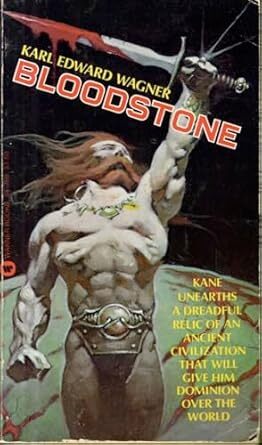
Kane is immortal, cursed, and clever enough to make that everyone else’s problem.
He walks through the ruins of dead civilisations, trailing philosophy, seduction, and body counts.
Bloodstone throws him into a tale of ancient tech, dark gods, and one very bad idea that keeps getting worse.
Wagner writes like someone who knows exactly how the world ends—slowly, with treachery.
You’ll love every rotten moment.
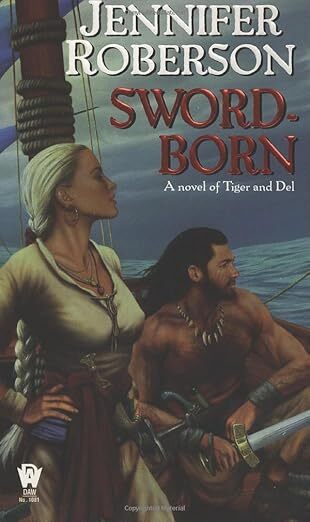
Tiger is a master swordsman with a past wrapped in riddles and scars.
Alongside Del, a northern warrior with her own reasons to swing first, he seeks answers across burning sands and poisoned politics.
The banter is sharp.
The swordplay is sharper.
Roberson proves that heart and violence can share the same sentence—and that no one’s too broken to be interesting.
Sword and Sorcery is a sub-genre of fantasy that focuses on gritty, personal adventures rather than grand, world-saving quests.
It typically features a lone warrior or rogue, minimal magic, and a setting where survival matters more than prophecy.
The tone is fast-paced, visceral, and grounded—closer to a knife fight in a back alley than a royal coronation.
High fantasy tells you the fate of the world is at stake.
Sword and Sorcery tells you the rent’s due and the sorcerer’s late again.
Where high fantasy is sweeping and epic, Sword and Sorcery is intimate and immediate.
Magic is rare and dangerous, and characters are often more interested in getting paid than being noble.
Not quite.
Grimdark leans into cynicism, with worlds so bleak they might as well come with a health warning.
Sword and Sorcery can be grim, but there’s usually a spark of defiance, dry humour, or raw survival instinct to cut through the gloom.
It’s not hopeless—just messy.
A morally grey protagonist, often a mercenary, thief, or outcast.
Tight, fast-paced plots focused on personal stakes.
A dangerous, low-magic world filled with corruption, monsters, and the occasional cursed relic.
And usually, at least one poor decision involving a temple, a demon, or a double-cross.
Robert E. Howard, creator of Conan the Barbarian, is the genre’s godfather.
Fritz Leiber coined the term and perfected the rogue duo formula with Fafhrd and the Gray Mouser.
Other key voices include Karl Edward Wagner, Tanith Lee, Charles R. Saunders, and modern writers like Jon Cronshaw, Glen Cook, and Scott Lynch.
Yes—and for good reason.
Readers looking for fantasy that’s fast, gritty, and character-driven keep turning to Sword and Sorcery.
It strips away the pomp and delivers raw, punchy tales of blood, betrayal, and bad decisions.
Perfect for those who don’t want to read three books before the story gets going.
Absolutely.
While early entries skewed male and muscle-bound, many modern Sword and Sorcery stories feature complex, capable women who fight, steal, and survive just as fiercely.
Writers like Jennifer Roberson, C.L. Moore, and contemporary indie authors have proven the genre isn’t just for brooding men with big swords.
No, but they share certain vibes.
Expect grimy cities, ancient ruins, dangerous frontiers, or haunted deserts—places where civilisation is thin and danger thick.
Whether it’s a pseudo-Medieval world or something more exotic, the setting always feels lived-in, perilous, and indifferent to your survival.
Try Guild of Assassins by Jon Cronshaw if you want emotional depth with brutal consequence.
The Hour of the Dragon by Robert E. Howard offers a classic Conan tale.
For something with charm and chaos, go for Swords and Deviltry by Fritz Leiber.
Pick any, sharpen your reading blade, and don’t expect a happy ending—just a bloody good story.
Note: this article includes affiliate links.



